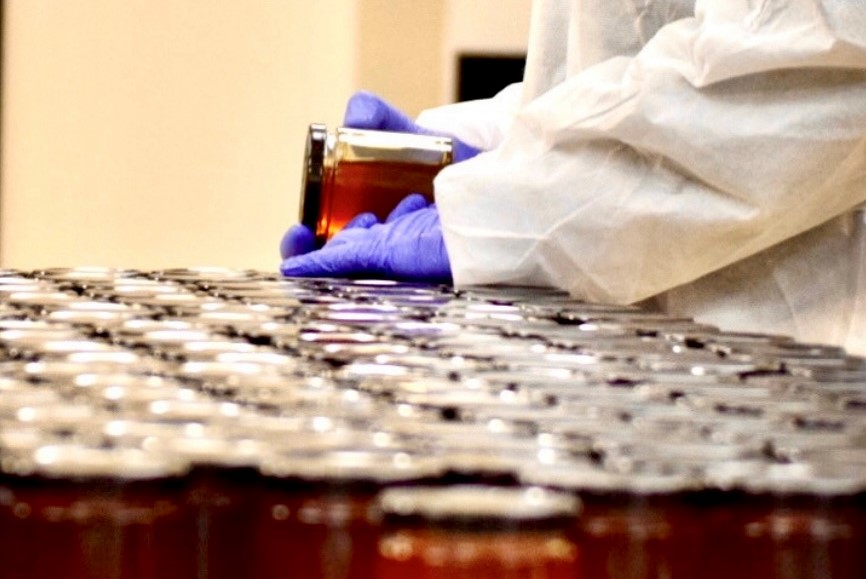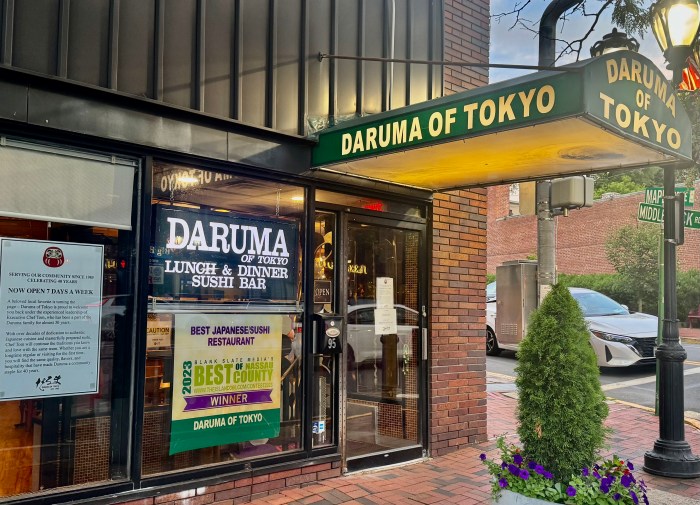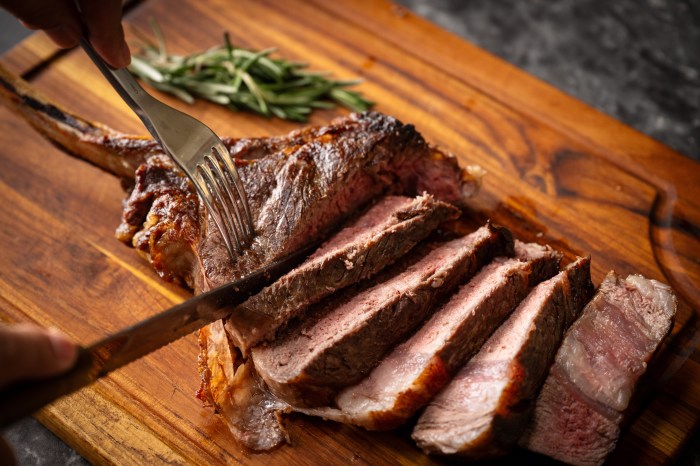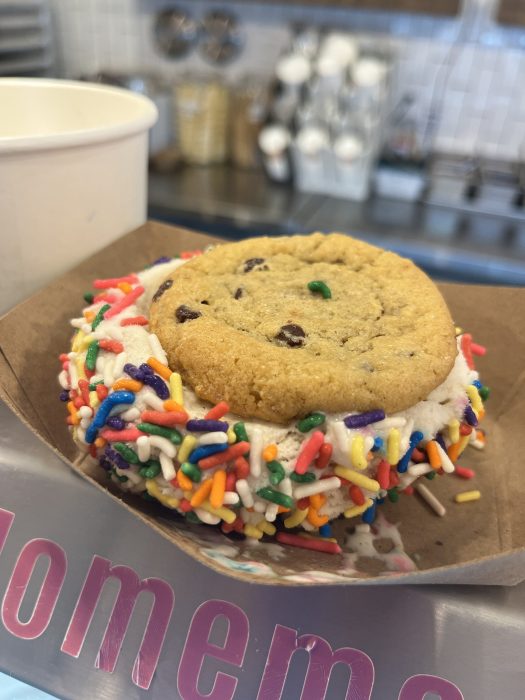At around 9 a.m. on June 15, Samantha Sherman, owner of The Hampton Grocer, arrived in a rented kitchen at Stony Brook University’s Food Business Incubator at Calverton. She soon left with the latest batch of The Hampton Grocer granola.
“I baked 300 pounds of granola in an hour,” Sherman said after finishing. “I do all of my production out of the incubator’s kitchen. It’s a great space with large ovens.”
While restaurants often faced a financial famine through much of the pandemic, Stony Brook University’s business incubator in Calverton is, if not in the midst of a feast, as busy as ever. Shared kitchens have cropped up across Long Island, giving culinary entrepreneurs a place to work, including this kind of culinary central.
“It’s incredible how many new companies have come in,” said Elaine Peterson, operation manager, for Alpha Honey Health, who has used the incubator since 2020. “The incubator’s there to help us succeed and link us with a network, whether it’s labels, marketing or retailers.”
Don’t ask what’s cooking in Calverton, unless you’ve got some time to listen to the answer. Yvonne Schultz leads the incubator, used by 64 companies, including 23 with dedicated space.
Businesses using the incubator, focusing on foods and beverages, offer pickles, cocktail mixers, dips, honey, a dizzying array of baked goods, pet treats, and much more.
“The incubator brings a sophisticated, high-quality kitchen space that we can use,” said Peterson. “You have to have the cleanest level of kitchens. That kitchen has to be pristine.”
Companies work in spaces including a shared-use commercial manufacturing kitchen divided into five areas, each with its own equipment. There’s a baking area, gluten-free kitchen, packaging area, storage, and operations space. Add to that walk-in refrigeration, freezer space, blast chillers, dishwashing station, a produce-washing sink, and mobile steel tables.
“They try to build a community, to connect people,” Stacy Malinow, who leads Bliss Pastries, said of camaraderie and cooking space. “With the pandemic, it’s been hard. Everyone cooks in their kitchen and stays by themselves.”
Juliet Day, owner and chief baker at Baked By Juliet, launched her business in June 2020 and began working at the incubator in January, making scones and cookies.
“A lot of them have been in this industry a lot longer than I have,” Day said of fellow entrepreneurs. “They are very willing to give advice and suggest resources I wouldn’t have known about.”
Malinow said Shultz has provided support throughout. “Yvonne helped with baking information, vendors, finding a company for packaging, general knowledge,” she said. “She gave me a lot of advice.”
Each entrepreneur has a story to tell. Day got a crash course in business after her culinary studies were put on hold. “I planned to go to pastry school,” she said. “Then the pandemic happened. Things shut down.”
During the pandemic, Sherman saw demand grow for granola, which she built into a business. “I started selling granola as part of gift baskets I delivered,” Sherman said. “The granola business was flourishing. I decided to laser focus on granola.”
Malinow began doing gluten-free baking in 2005 when her daughter was diagnosed with celiac disease. “I decided to take things into my hands and develop things she would want to eat,” she said. “People told me, ‘You should start a business.’”
Bliss Pastries was born, making gluten-free chocolate cookies, brownies, chocolate chip cookie pies, and muffins. Malinow bakes in the incubator’s gluten-free kitchen. “They don’t taste gluten free,” she said. “People don’t feel like they’re eating something different than everyone else. Everyone wants to eat them.”
Margaret and Bruce McDonough developed dog treats for their dog after becoming dissatisfied with what was available. Talk Treats To Me began doing business at the incubator in February 2020, making bottom round beef, beef liver, and chicken breast treats.
“People said, ‘Could I get some of that for my dog?’” said McDonough, whose wife has since passed away. “We said, ‘OK.’”
Each company has a niche, often serving specialized tastes or providing fresh, high-end, or healthy products. Alpha Honey Health imports Manuka honey from New Zealand which the company describes as high-end, providing taste and health. “They use helicopters to get the stuff,” Peterson said.
Encouragement from the incubator and entrepreneurs helps, but so does recognition and the satisfaction of seeing product sell out. Malinow said Taste New York’s center in Dix Hills increased its orders after selling out. Bliss Pastries recently delivered baked goods to a Taste New York kiosk at Moynihan Train Hall in Manhattan.
Alpha Honey Health, meanwhile, just won a triple-star superior taste award from the International Taste Institute in Brussels, Belgium. “As people emerge from the Covid-19 pandemic, they have a greater appreciation for healthy living,” Peterson added.
While each businessperson is doing their own thing, even during the pandemic, an incubator can provide a sense of truly being in this together – and sometimes helping one another.
“The incubator’s a very nice community of people,” Bruce McDonough said. “People are for the most part very supportive. They’re trying to work hard and get things going.”
For more business coverage visit longislandpress.com/category/business.
For more food and drink coverage, visit longislandpress.com/category/food-drink.
Sign up for Long Island Press’ email newsletters here. Sign up for home delivery of Long Island Press here. Sign up for discounts by becoming a Long Island Press community partner here.
































